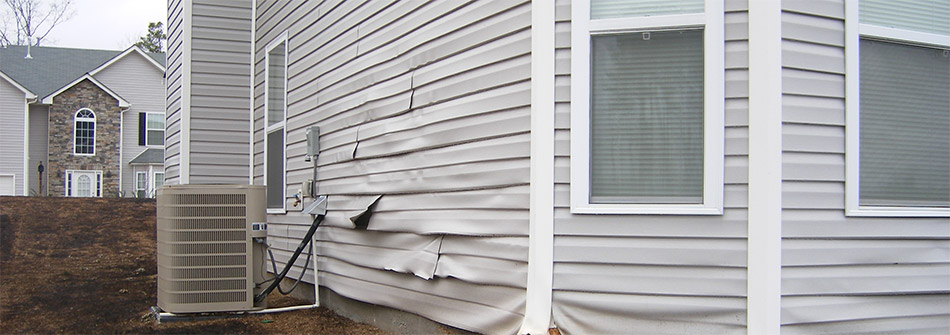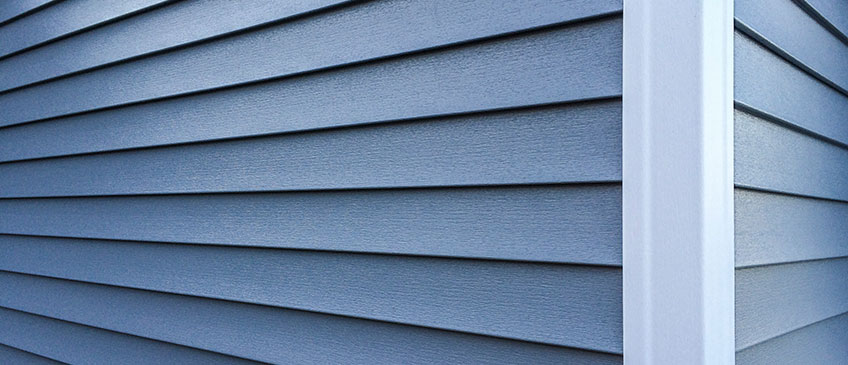
Aluminum siding is an excellent choice for homeowners who want strength and durability. Aluminum panel siding allows the homeowner to choose from vertical or horizontal layouts to customize their look. Since aluminum won’t rust like steel, it will prevent corrosion in your walls, making them last longer! But there are some potential problems with an aluminum cladding you should know about before installation.
Before you choose aluminum siding for your home, take a look at some of the most common problems associated with it. This will give you an idea if this type is right for your house:
Aluminum Dents And Scratches Easily
Aluminum siding is not as sturdy and durable compared to steel, especially when it comes to dents. One dent can easily lead to more which means you have the entire home re-sided for a few panels needing replacement! This may also happen in high winds where aluminum will be blown away by strong gusts of wind, leaving your house looking old quickly with many scratches or dents on different walls throughout.
Because one hole leads straight into another, regular maintenance is required for aluminum siding. Repairs are both expensive and dangerous. They can also be tough to do. For example, if a leak is in metal sheets, it could be hard or impossible to fix without removing the metal sheets and then repairing them afterward.

Doesn’t Always Look Good Up Close
When you use vertical siding panels to give the home a vintage rustic charm, it might look great from afar. When you look closer, your home may appear flimsy or even cheap-looking with aluminum siding because homeowners are dissatisfied with how close-up material appears on their homes. This is more common, especially if they don’t use more expensive thicker gauge aluminum siding panels that make them feel like they will endure time and keep that attractive appearance of elegance. Some homebuyers may wish to avoid such materials and opt for siding materials that look better up close and give the home a more appealing exterior appearance.
Makes Noises In High Winds Or Exposed To Hot Sun
When there are high winds or when the sun is scorching, homeowners may hear sharp popping and pinging noises from their aluminum siding. The unique properties of this material cause it to vibrate in these conditions, but while some find it, distressing others do not notice any difference at all.
The weather where you live determines whether your home will experience noise problems with its siding since extreme wind or heat can trigger vibrations that result in a “pinging” sound for owners who have installed properly-fitting aluminum siding.”
Difficult To Replace
Aluminum siding is difficult and expensive to replace. With wood or steel, whenever one panel gets damaged, it can be replaced; thus, you do not need a giant repair for every time the panels get hit by trees branches or have other defects. However, aluminum dents quickly, and scratching isn’t easy either because of its softness, so if only two panels are damaged, then repairing them will also cost an arm and leg like replacing all four would at once.

Fades Easily
Unlike steel siding, aluminum siding fades quickly. Vinyl is not immune to fading either, but because the color of paint on metal gets baked in when exposed for a long time, like during hot summer months, it can start looking faded even if installed recently.
Colors Get Chalky And Dull
The colors of aluminum siding can fade over time if they are exposed to the weather and time. However, this will not affect its integrity and functionality in any way; it just won’t look as crisp or vibrant anymore. Additionally, many homeowners worry that their investment could go wasted by spending a lot on something that would only remain to look new for a couple of years at most before turning into another color entirely due to fading.
Gaps can form
Gaps can form in aluminum siding during colder weather. Aluminum contracts when it gets cold, which leads to gaps between panels that let air pass through them more easily than usual.
Not energy-efficient
Perhaps what is most important, though, aluminum siding is not energy efficient. This means higher bills over time as you try to keep heat in during the winter and out during the summer.
